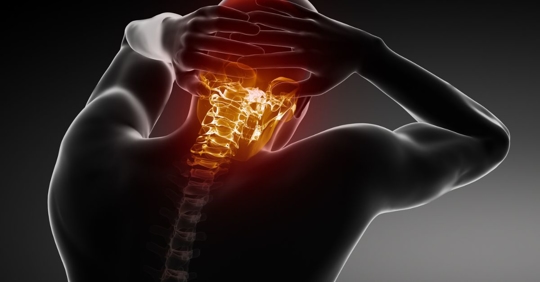When people think of injuries resulting from accidents, they often envision immediate, visible trauma such as cuts, bruises, or broken bones. However, it's essential to recognize that some injuries may not manifest symptoms immediately after an accident. These delayed injuries can pose significant challenges for individuals seeking compensation or pursuing legal action. In this blog post, we'll explore a guide to common delayed injuries sustained in accidents.
1. Whiplash
Whiplash is a well-known delayed injury, often associated with car accidents. It occurs when the head is forcefully jerked back and forth, stretching and straining the neck's muscles and ligaments. While symptoms may not appear immediately, individuals may experience neck pain, stiffness, headaches, and dizziness in the hours or days following the accident.
2. Concussions & Traumatic Brain Injuries (TBIs)
Concussions and other traumatic brain injuries may not exhibit immediate symptoms. The adrenaline and shock from an accident can mask the signs of a head injury. However, as the body returns to normal function, symptoms such as headaches, confusion, memory loss, and mood changes may become apparent. Seeking medical attention promptly is crucial for diagnosing and addressing these injuries.
3. Internal Injuries
Internal injuries, such as organ damage or internal bleeding, may not manifest symptoms immediately after an accident. These injuries can be particularly dangerous as they may not be visible externally. Abdominal pain, swelling, or changes in bowel habits may develop over time, indicating internal trauma that requires urgent medical attention.
4. Soft Tissue Injuries
Injuries to muscles, ligaments, and tendons may not be immediately apparent but can cause significant pain and limitations in the days following an accident. Soft tissue injuries can include strains, sprains, or tears, often affecting the back, shoulders, or knees. Seeking medical evaluation can help diagnose and establish a treatment plan for these injuries.
5. Spinal Cord Injuries
Spinal cord injuries can be deceptive in their onset. While severe injuries may cause immediate paralysis, other less apparent injuries may manifest gradually. Symptoms such as numbness, tingling, or weakness may develop over time, indicating potential spinal cord damage. Timely medical assessment is crucial to prevent further complications.
6. Psychological Injuries
The psychological impact of an accident, such as post-traumatic stress disorder (PTSD) or anxiety, may not be immediately evident. Emotional trauma can surface days, weeks, or even months after the incident. Individuals may experience flashbacks, nightmares, or changes in behavior, impacting their daily lives and necessitating mental health support.
7. Fractures & Bone Injuries
While some fractures are immediately apparent due to visible deformities or intense pain, hairline fractures or stress fractures may not exhibit clear symptoms initially. Swelling, bruising, or localized pain may develop over time, indicating an underlying bone injury that requires medical attention.
8. Delayed Onset of Pre-Existing Conditions
Accidents can exacerbate pre-existing medical conditions, and the symptoms may not become apparent until some time after the incident. Conditions such as arthritis, herniated discs, or chronic pain disorders may worsen due to the trauma sustained in an accident. Establishing a clear connection between the accident and the exacerbation of pre-existing conditions is crucial in legal proceedings.
9. Joint Injuries
Injuries to joints, such as the shoulder, knee, or hip, may not be immediately symptomatic. Damage to cartilage or ligaments may lead to pain, swelling, and reduced range of motion over time. Seeking medical evaluation is essential to diagnose and address joint injuries promptly.
10. Delayed Emotional Distress
The emotional toll of an accident may not become apparent until some time has passed. Individuals may experience anxiety, depression, or other emotional distress as they process the aftermath of the incident. Recognizing and addressing these emotional challenges is crucial for overall well-being.
Seek Prompt Medical and Legal Attention with Piering Law Firm
Understanding the potential for delayed injuries following an accident highlights the importance of seeking prompt medical attention. Even if symptoms are not immediately apparent, a thorough medical evaluation can detect hidden injuries and ensure appropriate treatment. Additionally, individuals involved in accidents should consult with a legal professional to navigate the complexities of pursuing compensation for delayed injuries. Timely documentation, medical records, and expert legal guidance can strengthen a case and help individuals obtain the compensation they deserve for injuries sustained in an accident.
To learn more about seeking legal actions following an accident, contact Piering Law Firm today. Our personal injury attorneys handle everything from car accident cases to boat accident cases, and are backed by a long track record of success. Reach out today to find out why our clients are consistently satisfied with their results.
Piering Law Firm is available online or you can call us at (916) 476-2399.

